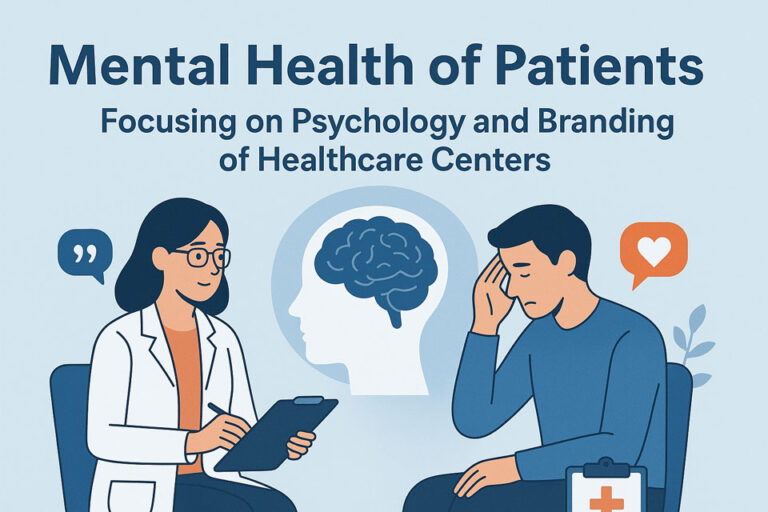The healthcare market today no longer competes solely on medical outcomes or advanced technology; patient experience and human connection are decisive elements of branding. According to a KPMG report (2024), more than 70% of patients stated that “the way healthcare staff communicate” was the main factor in choosing a hospital or clinic, even above technical expertise [4]. This highlights how emotional connection with patients can become the core differentiator of an attractive and trending healthcare brand.
Why Is Emotional Connection Important?
- Trust and Loyalty: A U.S. study on more than 1,200 patients revealed that those reporting an empathic connection with their physicians were 2.3 times more likely to recommend the clinic to others [3].
- Impact on Branding: Press Ganey’s 2024 dataset shows that clinics with high patient experience scores achieved an average 18% growth in repeat visits, compared to only 5% growth in clinics with low experience ratings [5].
Key Elements of Emotional Connection Influencing Branding
- Active Listening and Empathy: Fuehrer (2024) demonstrated that hospitals providing empathy training for staff improved patient satisfaction scores from 64% to 85% within one year [1].
- Transparency and Shared Decision-Making: Çakmak (2024) found that when patients participated in treatment decisions, their perceived service quality was 30% higher than in traditional care models [2].
- Balancing Technology with the Human Touch: KPMG reported that facilities emphasizing both digitalization and “human touch” scored on average 15 points higher in patient experience indices [4].
Practical Strategies to Turn Human Connection into Branding Advantage
- Empathy Training for Staff: Regular soft-skills training can increase patient satisfaction by more than 20% [1].
- Designing the Patient Journey: Press Ganey’s analysis showed that clinics redesigning their patient journey saw a 1.5x higher return rate compared to others [5].
- Emotional Branding in Marketing: Medical marketing trends in Iran (2024) show that emotional video campaigns gained up to 40% higher engagement rates than purely informational campaigns [6].
- Measuring Human Experience: Hospitals conducting quarterly NPS surveys improved their brand perception by 12 points in less than 18 months [4].
Risks and Ethical Considerations
Emotional branding must remain authentic and ethical. Data from 2024 show that 26% of patients reacted negatively to exaggerated or manipulative advertising, leading to reduced trust [6]. Honesty and respect for patient privacy are non-negotiable pillars for sustainable branding.
Real-World Impact
Evidence across multiple studies shows that patient-centered communication directly improves perceived service quality, which translates into higher return visits and organic brand growth. Hospitals integrating human connection at the core of patient experience consistently outperformed competitors in 2024 reports [2][5].
Conclusion
An emotional relationship with patients is no longer a luxury—it is a necessity for healthcare branding. Data from 2024 confirm that:
- Patient loyalty doubles with empathic care [3].
- Positive experiences can triple patient return rates [5].
- Investing in staff empathy training boosts satisfaction by up to 20% [1].
Therefore, human connection and empathy not only enhance clinical outcomes but also serve as the backbone of an attractive, trending healthcare brand.
References (2024 onward)
-
- Fuehrer S. Building Authentic Connection in the Patient-Physician Relationship. 2024. PubMed Central.
- Çakmak C. The Effects of Patient-Centered Communication on Patient Satisfaction and Perceived Service Quality. 2024. PubMed Central.
- Wu MS. A large-scale evaluation of therapeutic alliance and its impact on treatment outcomes. 2024. PubMed Central.
- KPMG. Improving the patient experience. 2024.
- Press Ganey. Patient Experience in 2024.
- ParsiAmin. Medical Marketing Trends in 2024. 2024.


